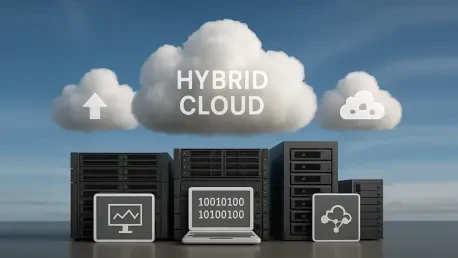In the fast-evolving tech landscape of the UK and Ireland, the hybrid cloud is becoming increasingly prominent, with adoption rates soaring from 58% to 68%. Despite this impressive uptake, firms continue to grapple with significant challenges that cloud adoption brings, particularly in cost visibility. Over half of IT leaders express concerns regarding the transparency of cloud expenditures, which muddles the ability to measure return on investment effectively. This issue surfaces as organizations strive for modernization, with 82% achieving agility through cloud integration, although only a third fully realize their objectives. A recurring hurdle in this journey is legacy infrastructure, which 71% identify as a primary impediment. While cloud solutions promise cost efficiency, a notable portion of management fails to prioritize these transformative shifts, hindering progress and realization of potential benefits.
The Path Forward: Strategic Focus and Partnerships
In response to various challenges in cloud integration, Ekco proposes a “FinOps” strategy. This approach aligns engineering, finance, and business goals to optimize cloud use. The framework emphasizes strategic planning during cloud transitions, reminding us that simply adopting new technology doesn’t guarantee success. In this landscape, Managed Service Providers (MSPs) play a crucial role. They assist firms in efficiently managing cloud projects, which have seen increased collaborations—from 30% to 40%—thereby enhancing project outcomes while adhering to scope and timelines. As cloud technologies evolve, particularly with artificial intelligence integration, Gartner predicts a rise in hybrid cloud adoption. By 2027, 90% of companies will have implemented hybrid solutions. However, the risk of dissatisfaction exists, as 25% of firms might face it by 2028 due to high expectations and poor execution. Firms with well-defined strategies can reduce dissatisfaction by 2029, highlighting the importance of clear objectives and regular evaluation for successful cloud integration.









